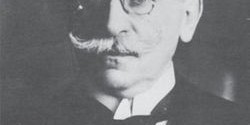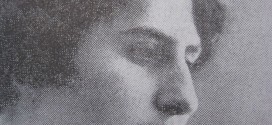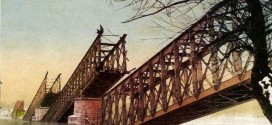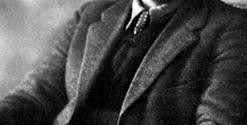After eighteen days of heavy and indecisive fighting at Kajmakčalan, the Serbian army was able to open the “Gate of Freedom” and return triumphantly to its homeland. Traveling by bullock carts, on poor roads and in bad weather, the soldiers brought not only pride and freedom, but also a memory of the great victory at Kajmakčalan that enabled them to return to their homes.
One of Belgrade’s most unusual monuments – an observation post located in the Pionirski Park, was made of stones from Kajmakčalan mountain. This monument represents a memory of the great victory in World War I, which the Serbian army achieved fighting against Bulgarians on the Kajmakčalan mountain. To save the memory of this victory for good, Serbian High Command decided to take the stones from the peak of Sveti Ilija (2,524 meters high) back to homeland.
At the very heart of Belgrade, in what was once a garden of the Old Palace, and where the young Princes Alexander, Tomislav and Andrej played war games, the reconstructed watchtower stands as a reminder of all the sufferings and sacrifices made by Serba in the Great War. In order to prevent the great men – who fought bravely for their homeland – from falling into oblivion, the memorial plaques with the names of all Serbian generals who took part in World War I were put on the watchtower.

Covered with vines and rocks, the stone tower was made to resemble the original observation post that was of great importance to Serbian soldiers in the battle (particularly remembered for the large number of deaths suffered by the Serbian army, and for the altitude at which it was fought). Brass memorial plaques with engraved names of the generals who bravely fought in the Great War represent the central part of this extraordinary monument.
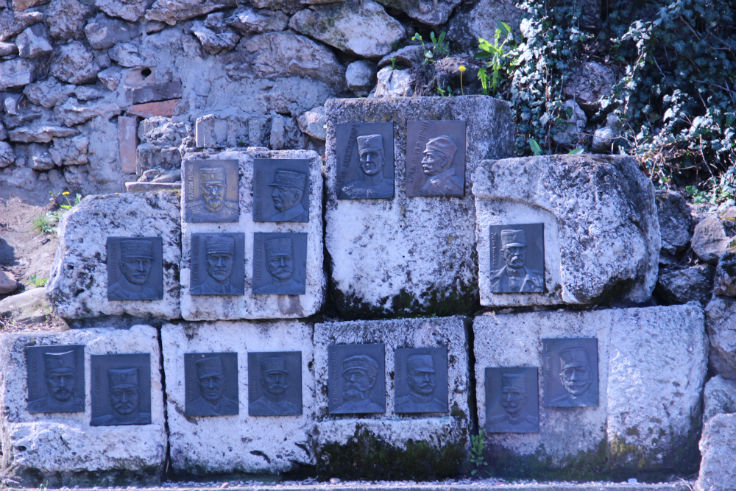
Until 1944, the Pionirski Park was surrounded by a high wall and served as a garden of the Old Palace; but, after removal of the wall, the park was turned over to public use, when the reconstruction of the Kajmakčalan watchtower began. In addition to the watchtower that makes this park so special and interesting both for tourists and residents of the capital, many rare and endangered plant species contribute to its beauty and importance.
A statue of the famous Serbian sculptor and painter Nadežda Petrović, and a monument to our only Nobel Prize winner for literature, Ivo Andrić, are part of the cultural richness of this botanical park (as many call it). The abundance of greenery, rare trees and plants, lots of resting benches and walking paths, make this park a favorite place for sightseeing, stroll and relaxation.
Courage, love and desire to return to their homeland, gave Serbian soldiers strength to conquer the “impregnable city”. Their endeavor and dedication was eternalized in a modest way – by erecting the watchtower in the Pionirski Park and a small memorial church at the top of Kajmakčalan, where the skulls of dead Serbian soldiers are kept. “To my fearless and faithful giant-heroes, who chested out to open the doors to freedom, and stayed here as guards at the threshold of the fatherland”, a tribute of Aleksandar Karađorđević on the memorial chapel.
 Battle of Kajmakčalan
Battle of Kajmakčalan
The battle of Kajmakčalan was fought between the Kingdom of Serbia and the Kingdom of Bulgaria on the Salonika front, in World War I. Various names for Kajmakčalan tell us about its significance: the Bulgarians called it the City of Boris, because they thought it couldn’t be captured, whereas the Serbs called it the Freedom Gate, because they stepped into their country at that very point, for the first time after many months. The battle was fought between the 12th and 13th of September 1916.
KAJMAKČALAN
Halt, Traveler! Here they lie!
The ashes of kings are hidden among these piles,
Worship them hat in hand,
One by one, buss them all!
Out of these barrows, a dirk from heap,
Where the trumpet of conscience aligned sinewy hearts,
Festivals of glory have shone to us
And removed the martyrs from the cross.
The eternals reside here, with flaming sacrifice
and heart pulse they woke the dead
Serb, halt! Here they lie!
These are our Lavras and altars;
Let their bright glow beam you,
And lower your forehead with prayer!
Aleksa Šantić
Source: serbia.com
 Управа за сарадњу с дијаспором и Србима у региону Управа за дијаспору
Управа за сарадњу с дијаспором и Србима у региону Управа за дијаспору
